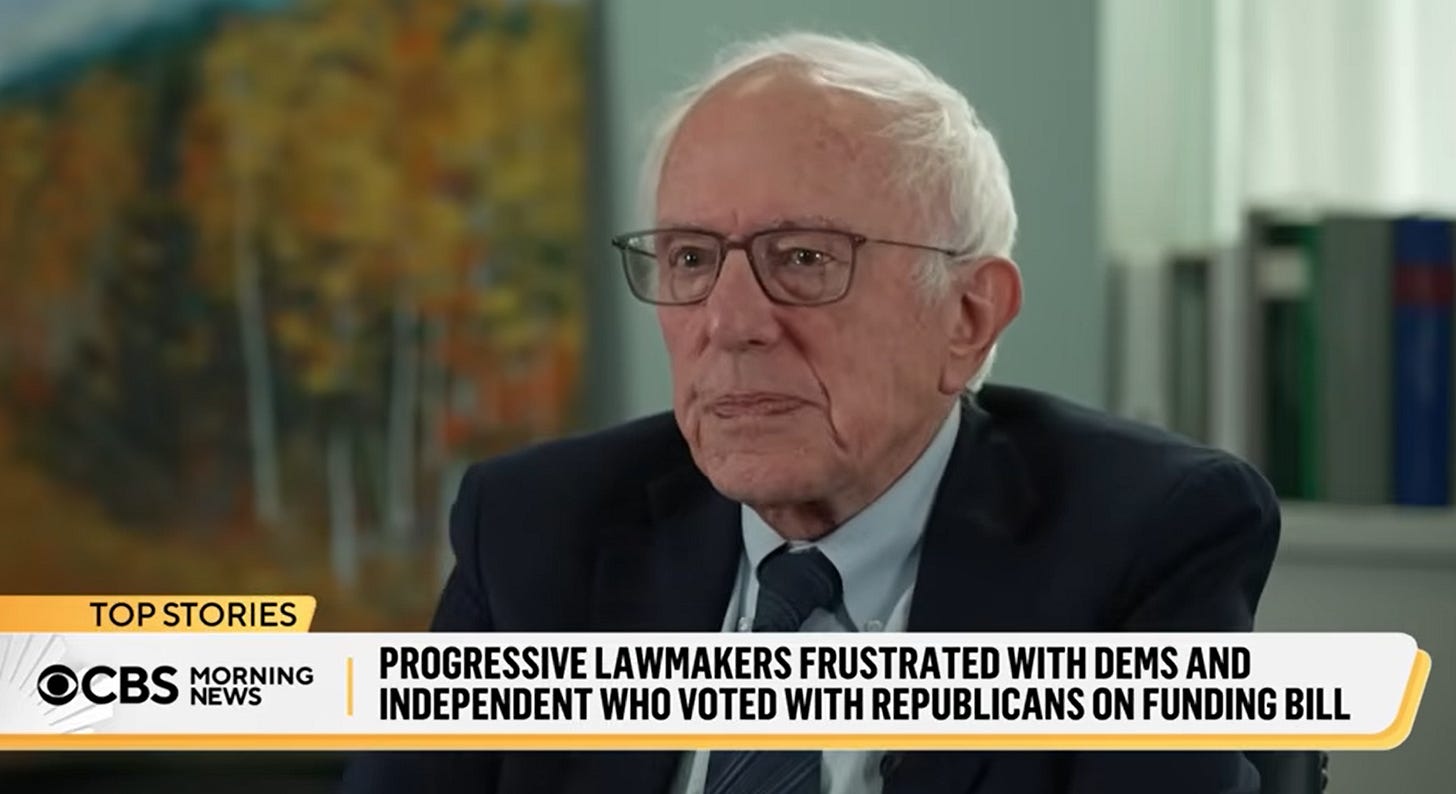Bernie, Brazil, and the Great Unknown
The courage to leap without promise
CBS News reporter Caitlin Huey-Burns sat down with classically suited-up-yet-somehow-still-disheveled Senator Bernie Sanders and asked him about his diagnosis of the Democratic leadership, under which 8 allies abandoned ship and voted for Trump’s budget bill.
Is Chuck Schumer still the man for the minority leader job?
Sanders briefly looked down, as if …



